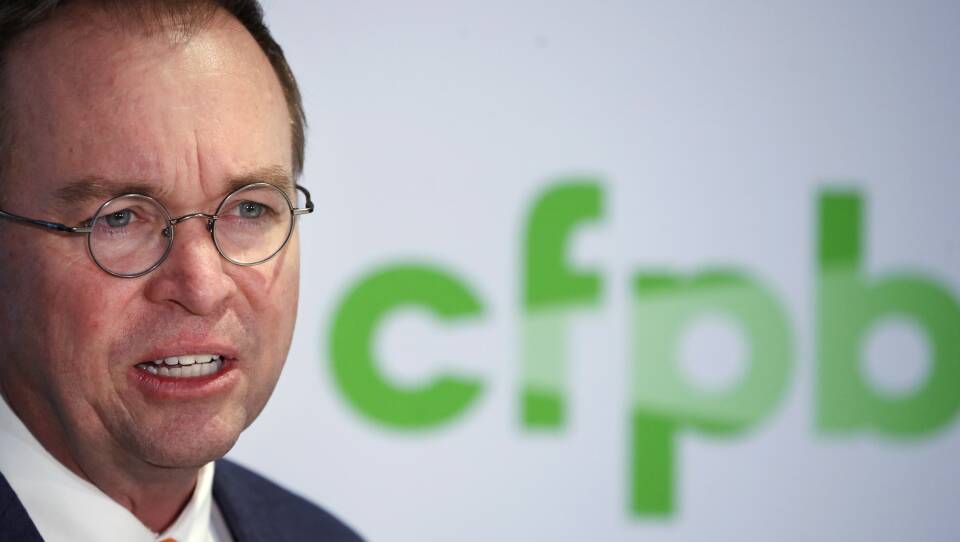A federal appeals court in Washington, D.C., has ruled that the independent structure of the Consumer Financial Protection Bureau — which forbids the president to remove its director except for certain causes — is constitutional. That's a setback for the agency's critics in the financial industry and the Trump administration.
By a vote of 7-3, the U.S. Court of Appeals for the District of Columbia ruled that Congress acted appropriately when it set up the bureau with a single director who could only be removed by the president for inefficiency, malfeasance in office or neglect of duty, and not for political reasons.
The case involves the PHH Corp, a New Jersey mortgages services company that had been fined $109 million in 2015 for alleged mortgage kickbacks. The company responded by challenging the CFPB Director's protection from removal as unconstitutional.
As NPR's Chris Arnold reports:
"After the financial crisis a decade ago, Congress created the Consumer Financial Protection Bureau. It's run by a single director with broad powers to create and enforce regulations that protect Americans from predatory lending and other abuses."Critics argue that gives the bureau too much power. They wanted President Trump to be able to fire the director for whatever reason he wanted."Now the court has ruled even the president doesn't have that power."
In its 250-page ruling, the appeals court said:
"PHH challenges the removal protection of the Consumer Financial Protection Bureau's Director, arguing that it unconstitutionally upsets the separation of powers. But the CFPB's structure respects the powers and limits of each branch of government. Congress's decision to establish an agency led by a Director removable only for cause is a valid exercise of its 18 Article I legislative power."
But as NPR's Arnold added, in the short term, the ruling won't make much difference. The Obama-era director, Richard Cordray stepped down in November 2017. Trump replaced him with an interim chief, White House Budget Director Mick Mulvaney, a longtime agency critic who once dismissed the agency as a "sad, sick joke." There is an ongoing lawsuit related to Mulvaney's authority. Upon Cordray's resignation, he appointed his chief of staff, Leandra English, as acting director of the Bureau. That set up a power struggle over the CFPB's leadership and so far a federal court judge has sided with the Trump administration, allowing Mulvaney to take charge.
Copyright 2018 NPR. To see more, visit http://www.npr.org/.




